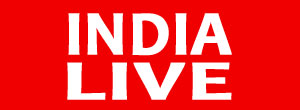Iran n-deal: six global powers sign landmark nuclear deal


Iran and the six global powers have hammered out a landmark nuclear deal-the breakthrough achieved in the early hours on Sunday after seamless rounds of hard bargaining in Geneva in the teeth of a high octane Israeli campaign to scupper the agreement.
Catharine Ashton, the foreign policy chief of the European Union (EU) who represented the big powers at the talks — United States, Russia, China, Britain, France and Germany — was the first to announce that the much awaited breakthrough, which was tantalisingly close to fruition even in an earlier round, had been finally achieved.
“We have reached agreement” wrote Ms. Ashton on her Twitter page. Eight minutes later, her Iranian counterpart Mohammad Javad Zarif tweeted a confirmation of the deal, which was signed in the Swiss city at 3 a.m. in the morning.
In essence, the agreement manifested a quid pro quo: Iran would freeze its nuclear programme for six months in return for limited sanctions relief for the same period. The six months window would give either side, room for reciprocal confidence building steps, in anticipation of a fuller agreement that would establish the peaceful nature of Iran’s nuclear programme, leading to a likely normalisation of its ties with the global powers.
The deal thrashed out in Geneva was the result of skilled and nimble diplomatic footwork, where both sides calibrated the limits to which they could compromise to achieve a breakthrough, and yet avoid a minefield of opposition that was brewing among sections of their audiences back home.
Under the terms of the deal, Iran would cease uranium enrichment of 20 per cent purity, which can be a stepping stone to the development of an atomic bomb. The existing stockpile of this material would be either be diluted, or turned into oxide, so that the resulting material cannot be easily returned to its threatening original state.
Iran would be allowed to carry out 3.5 per cent enrichment, under severe constraints, which would ensure that its existing stockpile at the end of six months does not expand. Currently, Iran has a seven tonne stockpile. This can increase by another tonne due to fresh enrichment, but at the end of six months, the accumulated material should return to seven tonnes.New equipment would be installed to convert part of the additional stocks to oxide.
Allowing Iran to carry out limited enrichment, without explicitly acknowledging its “right to enrich,” is the result of an understanding that was apparently reached after difficult negotiations between Washington and Tehran. The New York Times is reporting that American officials had recently signaled their openness for a compromise, where the two sides would “agree to disagree” on the interpretation of the Nuclear Non-Proliferation Treaty (NPT), which Iran has signed, without stopping Tehran from enriching.
The divergence in interpretation was evident when U.S. Secretary of State John Kerry said in Geneva that, “This first step does not say that Iran has the right of enrichment, no matter what interpretative comments are made.” On the contrary, during his turn at the podium, Mr. Zarif declared that the agreement “has a very clear reference to the fact that Iranian enrichment programme will continue and will be a part of any agreement, now and in the future.”
The deal also overcame past objections from countries such as France, which wanted Iran to halt all construction at the heavy water facility at Arak, which can allow Tehran to derive Plutonium as an alternative material for a nuclear explosion. In the compromise that was struck, Iran is allowed to carry out construction activity, but is being prohibited from producing fuel that is necessary to run the heavy water reactor at the facility.
The agreement bars installation of additional centrifuges — spinning machines that are used for enrichment — but permits the replacement of those that are broken.
The entire deal rests on foundations of a watertight monitoring regime that would be enforced by the International Atomic Energy Agency (IAEA). Consequently, international monitors would be allowed daily entry into Natanz and Fordo facilities —Iran’s two premier enrichment sites — to check camera recordings there.
In return for its compliance, Iran would be permitted phased sanctions relief amounting to $ 6-7 billion, of which $4.2 billion will flow from funds that have been frozen in foreign bank accounts. The calibrated lifting of sanctions will follow an executive order that would help President Barack Obama by-pass Congress, where there has been a significant opposition to a compromise deal with Iran.
Israel, known for its considerable influence among U.S. lawmakers, has slammed the deal. “What was achieved last night in Geneva is not a historic agreement, it was a historic mistake,” asserted Israeli Prime Minister, Benjamin Netanyahu, during a meeting with his cabinet colleagues.
Related posts
Deprecated: Function WP_Query was called with an argument that is deprecated since version 3.1.0!
caller_get_posts is deprecated. Use ignore_sticky_posts instead. in /var/www/vhosts/indiavision.com/httpdocs/wp-includes/functions.php on line 6085

